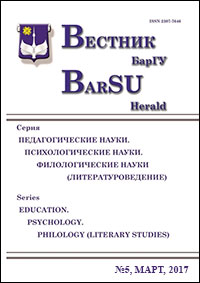PERSON’S PSYCHOLOGICAL SECURITY CHANGE IN THE CONDITIONSOF SUBJECTIVE INTRUSION
Keywords:
security, impact, protection, information aggression, information-psychological security, information, penetration, psychological security, consciousness, subjective intrusionAbstract
The article discusses the problem of offensive influence on a person in the information society. The object of the
research is the phenomenon of subjective intrusion, which is seen as the aggressive penetration into the human mind from
the outside. The external penetration into the mental space of the subject leads to the reduction of person’s psychological
security. The level of destructiveness of the penetration is determined by the degree of subject’s openness to it. The
openness to subjective intrusion is connected with the maturity of the personality structures, psychological self-regulation
and the person’s mood. The aggressor’s strategy of penetration influences the subject’s ability to identify and counteract
it. In practice the act of subjective intrusion is the basis for the implementation of aggressive actions against the subject in
the form of emotional infection, suggestion, manipulation and information pressure. The counteraction is based on the
ability of the subject to resist the subjective intrusion. It’s suggested to develop a number of personal qualities and
psychological characteristics of a subject to oppose the subjective intrusion.
Ref.: 16 titles.
Downloads
Published
Issue
Section
License
Copyright (c) 2023 Вестник БарГУ Серия "Педагогические науки. Психологические науки. Филологические науки"
Это произведение доступно по лицензии Creative Commons «Attribution-NonCommercial» («Атрибуция — Некоммерческое использование») 4.0 Всемирная.
Авторы сохраняют за собой право заключать определенные договорные соглашения, касающиеся неисключительного распространения опубликованной версии работы (например, размещать ее в институциональном репозитории, публикация в книге) со ссылкой на ее первоначальную публикацию в этом журнале.





